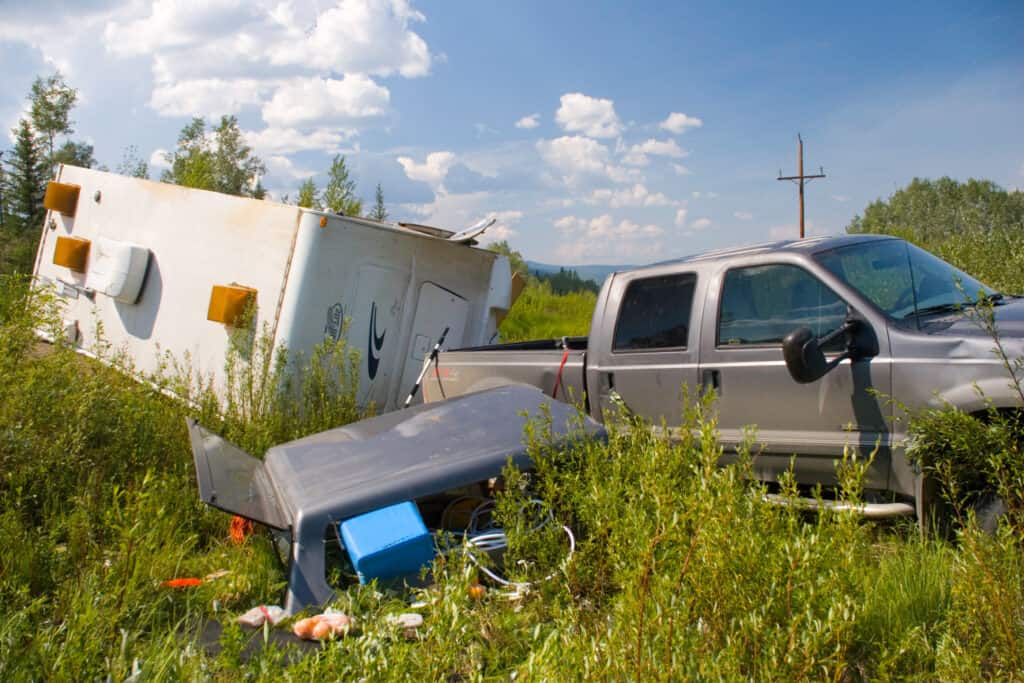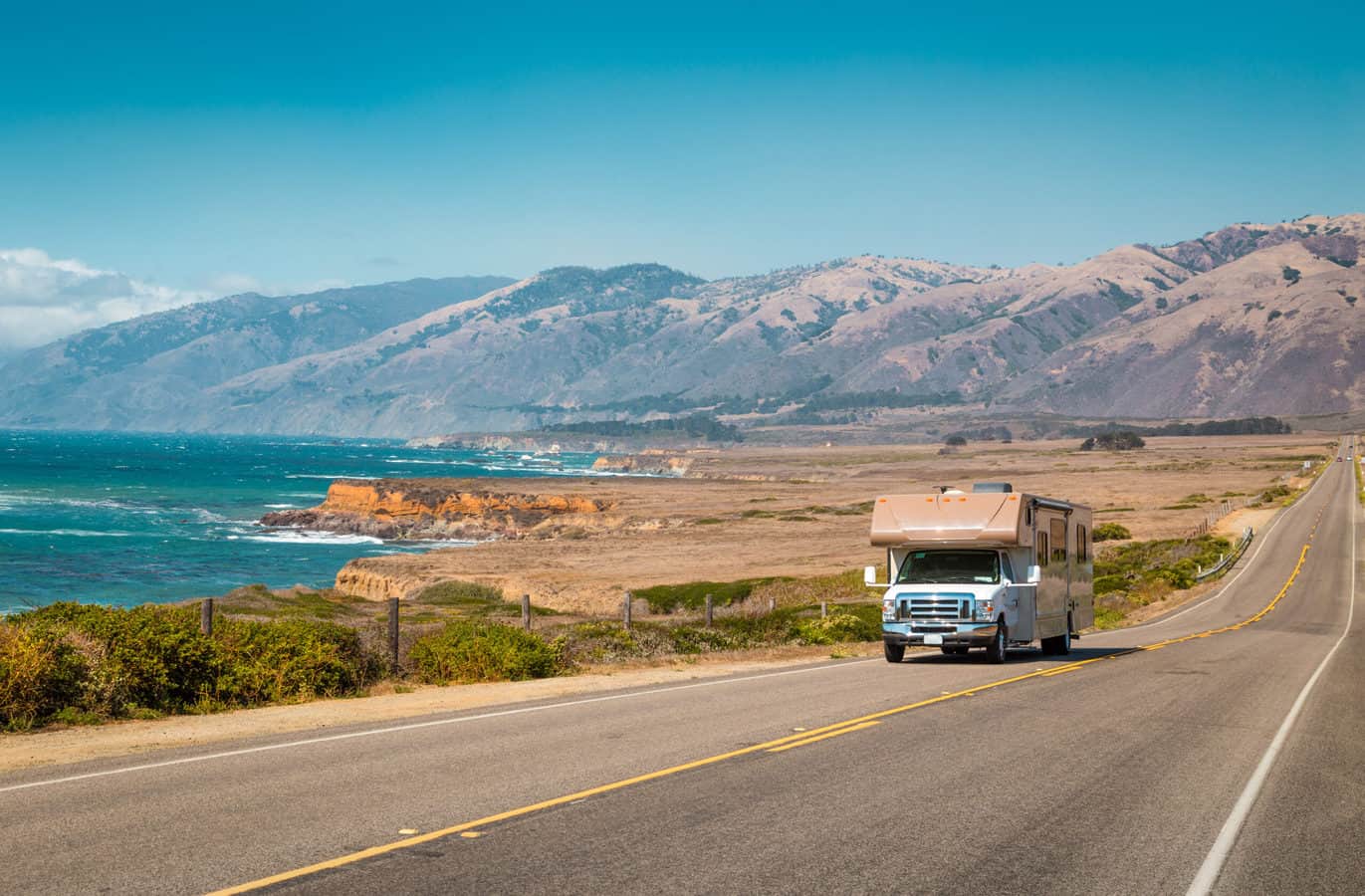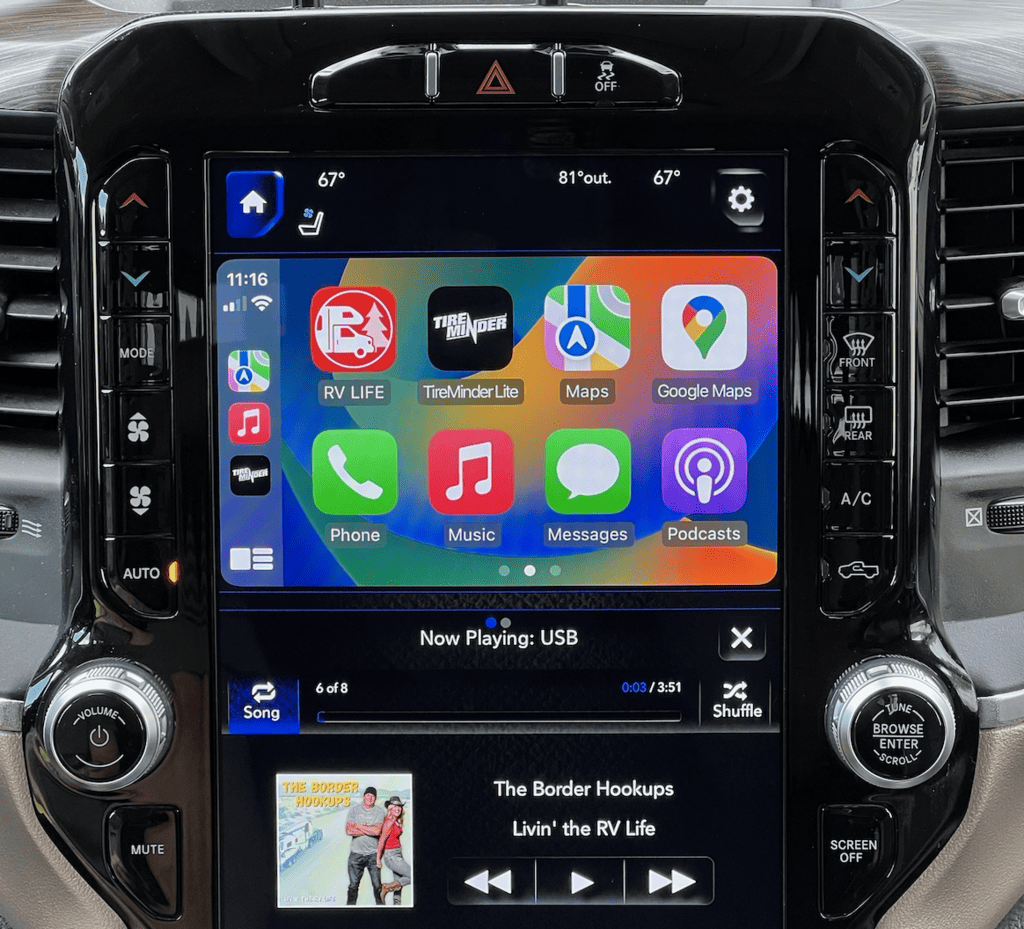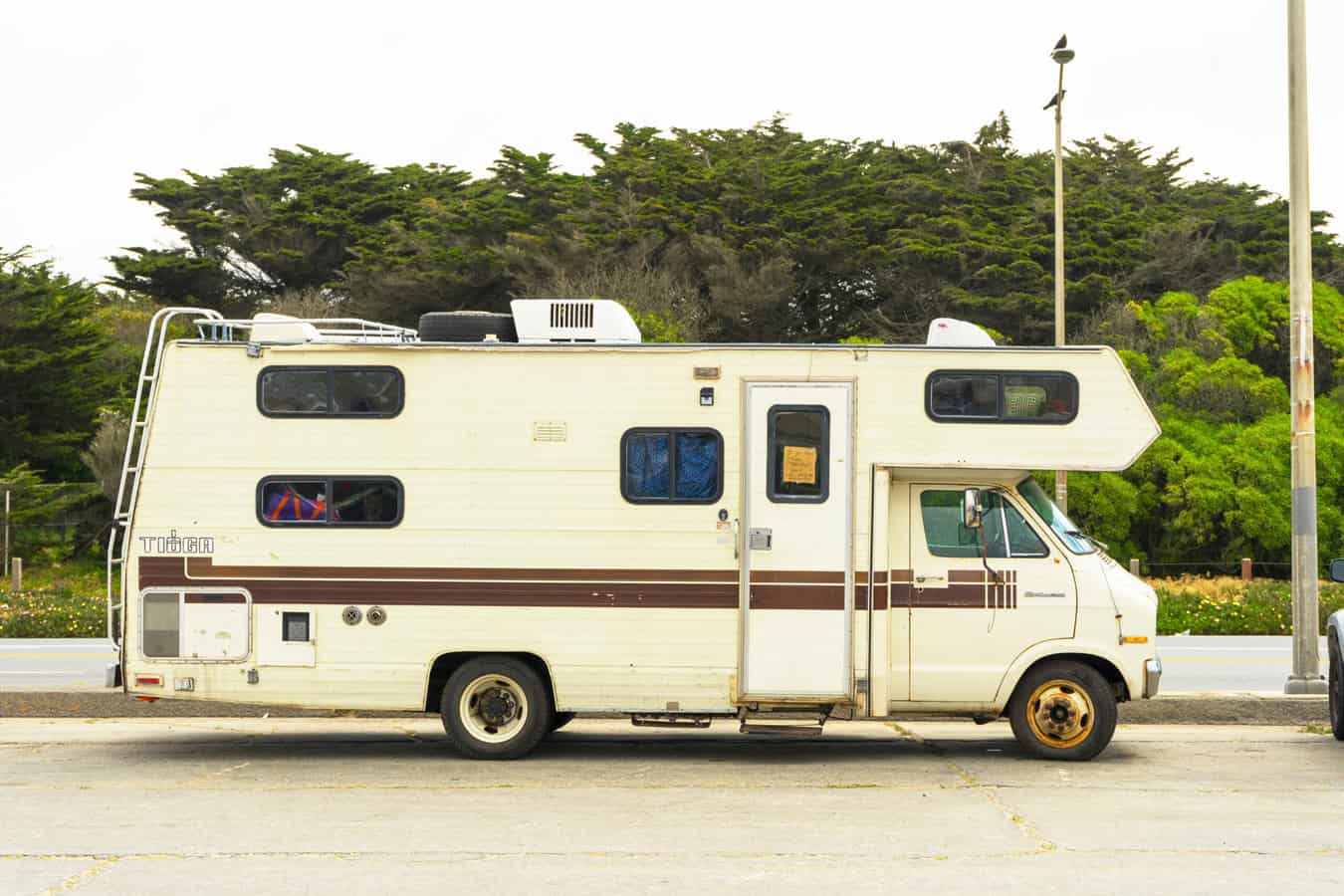RVs are huge and usually heavy. But if you ever go RVing in high winds, you may wonder if a camper or RV can tip over. Here’s the truth: yes, in different scenarios. The good news is, you can do something to prevent it.

Why a Camper or RV Can Tip Over in Different Situations
The sheer size of RVs is deceiving. Today’s average trailer weights hover near 5,200 pounds. Many RVs weigh as much as 7,705 pounds. But it’s not RV weight that prevents dangerous rollovers. It’s mainly how you drive, and rarely, where you go, that can make a camper or RV tip over.
This article explains the conditions that cause a camper or RV tip over, how to avoid a rollover, and what to do if your RV flips.
How Do Campers and RVs Roll Over?
There are several ways a camper or RV can tip over. Let’s talk about each one.
Fishtailing
Fishtailing. Jackknifing. Trailer sway. Whatever the name, it’s terrifying if it happens to you.
The side-to-side movement known as fishtailing occurs when a camper trailer begins moving independently of the towing vehicle. The hitch must be located near the rear axle for trailer swaying to occur. Usually the hitch keeps the gravity of a towing vehicle and trailer evenly matched. But when gravity is disrupted, the trailer sways.
Fishtailing happens in other situations. For instance, if the weight distribution of a trailer is off, it can jackknife. This is why it’s important to spread cargo weight evenly across the entirety of your camper, not just in one or two corners.
Another cause of trailer fishtailing happens when too much weight is placed near the trailer hitch. This is where tongue weight comes into play. That’s the amount of downward force the hitch can handle before fishtailing kicks in. Usually, it should equal between nine and 15 percent of the total weight of the trailer.
Failing to properly correct trailer fishtailing can lead to horrible RV accidents.
Acceleration
RV speed limits exist for a reason. Some states allow more generous speeds. For instance, Alabama lets you drive 70 MPH while towing a trailer. Maine, Louisiana, Colorado and some other states let you go even faster at 75 MPH. Nevada is by far the fastest with a limit of 80 MPH.
Just because you can go that fast towing a trailer, doesn’t mean you should.
You have to be ready to stop at a moment’s notice. Not only does your towing vehicle have to roll to a complete stop, but so does your trailer. This takes longer than you’re accustomed to when you have thousands of pounds behind your towing vehicle.
I always recommend driving within the speed limit. There’s no need to push the outer limits in a towing setup. It can be easy to start accumulating speed since you’re driving your familiar truck or SUV, but use caution. Making fast turns and other maneuvers can cause a camper or RV to tip over on the highway.
High Winds and Bad Weather
Finally, sometimes high winds and bad can tip RVs and trailers. One 2009 study found that it’s possible to add extra force (like 3,440 pounds extra) just by a generated crosswind of 35 miles per hour. Yikes!
Bad weather isn’t the only cause of heavy crosswinds. If a large semi-truck or other commercial vehicle rushed by you on the highway, they can also create a nasty crosswind force.
Generally, winds need to exceed 70 MPH for you to be at risk of tipping. Those winds are considered “strong gale” forces strong enough to pull roof shingles off and destroy RVs and buildings. This rarely causes trailers to tip over because most RV owners are smart enough to avoid driving in high winds.
What If Your RV Rolls Over?
If your RV is going to roll over, you know. The trailer may groan, creak, or make an otherwise obvious noise indicating trailer roller is imminent. If you’re in the trailer, you may feel it pulling towards the ground. If your trailer tips over, get out of your tow vehicle. The rollover could spark an electrical fire or a trailer explosion. Move away and get to safety.
How to Avoid a Trailer Rollover
- When your camper is parked, use stabilizers, jacks, wheel chocks, and the like to keep it upright.
- If you can park your camper near a hillside or a wall, you can negate most strong winds.
- Don’t park on a hill. I talked about gravity before between the towing vehicle and the camper, but here’s a different application of gravity. Gravity doesn’t want to keep heavy things propped up on a hill. If your hitch were to let go, your camper would be toast.
- If your camper has slide-outs, make sure they’re all in when wind hits. This stabilizes your vehicle somewhat.
- The same goes for your awning. Retract it in high winds.
- Try to drive with the wind, not against it. That means face in the same direction as the wind is blowing. You’ll get better fuel mileage as a bonus.
- On that note, reconsider whether you want to drive in strong winds in the first place. If it’s not necessary, then why put yourself in potential danger?
- Ensure you have a compatible hitch for your camper. Check all the lugs, bolts, and parts to make sure there are no loose or missing screws. Lubricate the hitch if need be.
- Drive within a reasonable speed limit. Take turns and corners extra slow.
- When driving beside a large vehicle, try to match their pace without going over the speed limit. This should help you avoid a potentially dangerous crosswind.
Conclusion
Yes, it’s possible for a camper or RV to tip over. Fishtailing, taking corners too fast, and driving in windy conditions can all cause RV rollovers. Wind can be generated from semi-trucks and other large vehicles as well, putting your camper at risk.
If your camper happens to flip over, treat it like you would any accident. Exit the vehicle, call the police, file an official report, and consider medical attention. By following the list of safety techniques to follow, you can avoid an RVers worst nightmare.



